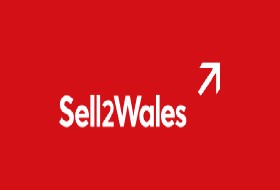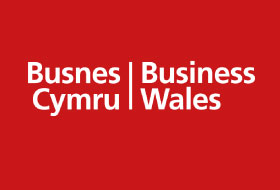Supplier Guide to Tendering
In this section
6. How does the tendering process work?
If you are interested in working with us, these are the steps we take to appoint a supplier:
-
1
We can notify suppliers of a quotation or tender opportunity in one or two ways. We will either:
- Issue a 'Request for Quotation' notification by e-mail or via 'Request for Quotes/Sell2Wales' by selecting appropriate suppliers to quote in accordance with our Contract Procedure Rules.
- Place an advert/notice on Sell2Wales/Find A Tender Service (FTS) which recently replaced the Official Journal of the European Union (OJEU) detailing the requirement which any supplier can view. The advert/notice will contain specific instructions to the supplier on how to obtain the procurement documents and how to submit a response. Prospective suppliers will need to register with Sell2Wales and eTenderWales in order to access relevant documentation and receive notifications of contract opportunities. Should you require support with the following registrations, guidance is available from BusinessWales. Phone Number: 01656 868 500 E-mail: - trading@businesswales.org
-
2
Dependent on the value of the quotation/tender, we will either issue a 'Request for Quotation (RFQ)' or an 'Invitation to Tender (ITT)'. An RFQ and ITT are quite detailed but it is not intended to discourage potential suppliers from tendering for our business.
Broadly, we will ask for information about the following, however this may be different for specific contracts:
- Supplier acceptability - Mandatory grounds for exclusion on the basis of offences such as bankruptcy, fraud, bribery, insolvency
- Technical capability and capacity of the organisation - e.g. Relevant experience, qualifications etc.
- Economic and financial standing
- Insurances - Evidence of minimum levels of insurance cover, Employer Liability, Public Liability and Professional Indemnity Insurance (if appropriate)
- Other aspects including Welsh Language, Safeguarding, Sustainability, Health & Safety, Ethical Employment Practices, Equal Opportunities and Management
We will use questions from a standard question bank set up Welsh Government. This is known as SQUID (Supplier Qualification Information Database) to determine which suppliers are most suitable and qualified to be selected to submit a tender or quotation. If suppliers meet the requirements above they will progress to the evaluation and award stage of the process.
Most Councils and other public bodies will request similar information as part of their process. It is advisable to prepare the necessary documentation in advance and have it available to make it easier and quicker to complete when responding to an invitation to a quotation or tender.
The RFQ/ITT will include details of our requirements for the particular contract including:
- A description of the services, supplies or works being procured (specification of the requirements)
- The procurement timetable including the quotation/tender return date and time
- Details on how the quotation/tender is to be submitted (i.e. via eTenderWales)
- Instructions on whether any variants are permissible
- Terms and conditions of contract
- Form of tender
- Award Criteria (price/quality)
- Pricing mechanism
- Method statement questions (quality section - asking about how the requirements of the specification will be delivered)
- Whether TUPE is likely to apply - Transfer of Undertakings (Protection of Employment)
- Any further information specific to our requirement and which may assist suppliers in preparing submissions
-
3
The instructions for submitting tenders and quotations will be included within the documentation. This will be via the Sell2Wales or eTenderWales website.
Suppliers completed responses must be submitted in accordance with the RFQ or ITT and by the closing date and time specified. Suppliers must ensure that all documentation is completed and submitted as well as any other additional information the Council has requested as part of the procurement process.
No tenders or quotations received after the specified closing date will be considered. One of our nominated officers will open all tenders and quotations after the closing date and time.
All tenders and quotations shall be evaluated in accordance with the criteria set out in the procurement documents. Tenders and quotations can be evaluated on either:
- Price/Cost (lowest price score) or
- Price/Cost and Quality
Price and quality is used for the majority of contracts and this is known as the Most Economically Advantageous Tender (MEAT) with weightings assigned to price and quality and the two elements are evaluated.
Quality is evaluated first and the price (commercials) are opened and evaluated thereafter to ensure the process is fair and transparent. Each element will be given a maximum percentage score, which is weighted according to the relative importance placed upon it. There is no fixed balance between the two; it varies between each procurement exercise and depends upon the type of goods, works or service being sought.
The evaluation of the method statement questions is based on the supplier’s response to how the requirement will be delivered as opposed to evaluating the suppliers capability and capacity derived from experience.
-
4
We will notify all suppliers submitting a quotation or tender of the outcome of the process, both if you have been successful or unsuccessful. If the procurement value is above the UK Public Procurement thresholds we are legally required to observe a 10 calendar day standstill period. This is a cooling off period that allows unsuccessful tenderers to formally challenge the award decision.
Unsuccessful suppliers are entitled to receive feedback on the outcome of the procurement process and contract award, including how their submission was scored in comparison with the successful supplier. Please note that we will not disclose any commercially sensitive information in relation to the successful supplier’s tender. This should be looked at as a positive measure highlighting what points were lacking and to improve and increase your chances for success in the future.
Successful suppliers will be invited to enter into a contract on the terms and conditions specified in the procurement documents. Generally, we will not consider any amendments to the contract terms and conditions.





